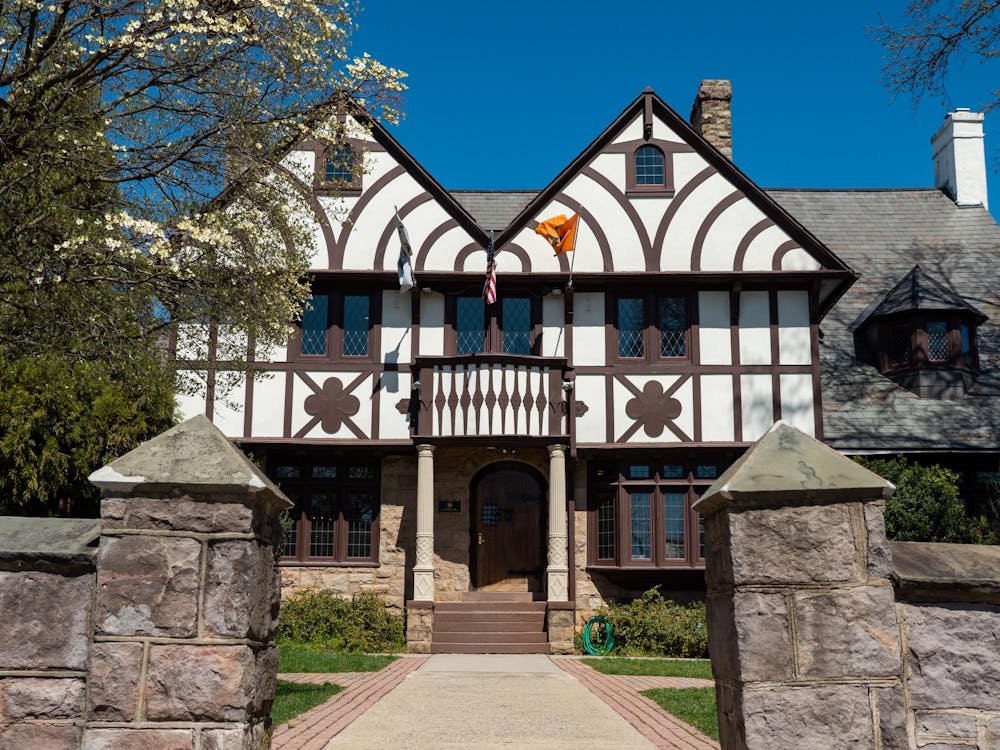The following is a guest contribution and reflects the author’s views alone. For information on how to submit a piece to the Opinion section, click here.
When I entered Tiger Inn (TI) for Bicker two years ago, it was my second time in the building. I chose to bicker TI because I felt that the club had made strides to be more inclusive and heal their reputation and community. Nevertheless, I was unsure about joining the club and remained fearful of a cold and condescending environment, considering the negative past surrounding the bicker process and the troubling history of the club. Instead, however, I found a friendly and welcoming crowd of students excited to get to know me. I had such a pleasant experience that I joined the eating club and have loved it ever since.
Last year, I was apprehensive to see the other side of the process. After reading several angry criticisms of the eating clubs and hearing rumors of corruption and discrimination, I worried that my love for TI would sour. However, I was once again surprised. There was a deliberate and embodied display of compassion and acceptance of all bickerees that permeated the core of the process.
Though my experience as a bickeree and a member has been nothing but positive, I cannot deny the truth. Systems of power are self-replicating: we selected sophomores who we knew and liked and excluded those who didn’t fit the mold. At times, this exclusion can be nasty, prejudiced, and underhanded. Contrary to the hawkish words of its critics, however, Bicker is not the one to blame. Bicker is an explicit representation of power dynamics that are implicitly present in other social groups. These toxic power dynamics, entangled with a larger American, scholarly, and capitalist culture, are present in Bicker and sign-in clubs alike. These dynamics need to be exposed and restructured with reflexivity and transparency in mind.
Bicker brings to the surface what remains hidden in other settings, like the sign-in clubs. This hidden exclusion manifests in sign-in clubs through members hiding social hierarchies: a friend of mine recently complained that he barely knew anyone in his sign-in club because the cliques made him uncomfortable. The fact that this kind of exclusivity is obscured means that it has the potential to be much worse. Clubs could secretly manipulate the sign-in process without accountability, arbitrarily accepting entire teams or friend groups, while waitlisting others. Shrouded under an assumption of inclusivity, sign-in clubs have the potential to hide corrupt practices.
To be clear, sign-in clubs are probably not currently doing (and would likely never do) something so devious and drastic, and many students join the current sign-in clubs because they are less affiliated with external power systems. However, if Bicker were to be abolished, I doubt that the egalitarian dynamic of sign-in clubs would be adopted by the rest of the street. If all clubs were forced to abandon Bicker, it would be foolish to expect Greek letter organizations, sports teams, clubs, and other groups, to loosen their grip on their social capital. They would simply continue their practices behind an additional layer of secrecy, increasing the barrier to equity.
Currently, every student who signs in to eating clubs is almost guaranteed to get into at least one. If Bicker is abolished, formerly selective clubs may attempt to uphold exclusivity through price hikes and other barriers to entry that would disproportionately affect marginalized identities. In clubs where systems of exclusivity are the norm, exclusivity would perpetuate itself whether its execution is public or private. In addition, large intersecting institutions will continue to exercise and reproduce their power whether Bicker clubs exist or not. Removing Bicker is not the answer to elitism and exclusivity. It is a symptom of a real problem, but ending Bicker would only obscure that symptom and make the disease untreatable. In fact, the benefit of a system like Bicker is that it can be improved and edited.
A candid, transparent Bicker would allow for more regulation and could create a culture of accountability. To do so, it should be mandatory for clubs to publicize demographic data of their bickerees and accepted members. This would encourage clubs to seek out diverse crowds and decrease phenotypical biases.

Further, the score manipulation known as “dirty bickering” — inflating or tanking a bickeree’s score due to factors outside of their performance at Bicker — needs to be either actively policed or embraced as a feature. Policing dirty bickering could involve introducing and enforcing double-blind and random segments of Bicker and instituting punishments for engaging in foul play.
On the other hand, “embracing” dirty bickering could look like allowing official bids from affiliated organizations or normalizing sophomore scores based on how many members they know. This process is what already occurs behind the scenes. Publicizing and standardizing this process would at least inform all those involved and be the basis for some progress. Many of the grievances about Bicker come from the fact that it falsely presents itself as a meritocratic process. At the very least, sophomores should be properly informed by the eating clubs if their acceptance is not only about how cool they are but also about who they know. We must either eliminate or legitimize this aspect to “clean up” Bicker and set sophomores up for success.
All members should also be involved in Bicker discussions. What I loved the most about TI discussions is that we heard everyone’s voice, and nearly every bickeree had representation and consideration. On the other end of the spectrum is a conclave-style selection process where a small council conspires behind closed doors to select new members. Bicker should avoid this technique and instead adopt a more open and honest process with an idea of equal opportunity and cooperation.
Another issue with Bicker is that the power differential between members and bickerees is steep, which adds unnecessary tension and decreases accountability. To narrow this gap, there ought to be a reflexive scoring system, where bickerees score members in the same way members score bickerees. This new rating would affect the member during discussions, where their judgments would be weighted according to their score. This would discourage intimidation tactics and disrespectful practices. Trends in these scores could assist in informing disciplinary actions and address club-wide shortcomings.

Another difficulty of Bicker is that it is a high-octane social stressor packed into the first few days of school in the spring semester. Bicker should be a long, low-frequency process that starts in the fall with events that contribute tangibly to Bicker results. Then, there could be many more lower stake and lower intensity events in which more sophomores could participate. This way, sophomores who are traveling, sick, or just having a bad day aren’t being unjustly excluded. Currently, many pre-Bicker events have no direct impact on Bicker scores, meaning that they only impact dirty bickering. These events need to be a part of the selection process in a regulated way. In addition, decreasing the stress around the event and letting the sophomores get to know the club more would alleviate some of the pain of the process.
Bicker is a unique opportunity to bring power dynamics and corruption into the limelight. It has the potential to be a regulatory tool if used in the right manner. I am not claiming that Bicker is the only option for the future of Princeton’s social scene. However, it would be unwise to remove it hastily. Abolishing Bicker would only obscure misdeeds and slow progress toward inclusivity and egalitarianism. We can create a Bicker with which we are all comfortable by restructuring with transparency in mind. Implementing a reflexive scoring system and a more prolonged, low-pressure process can mitigate the power differential and anxiety associated with Bicker. The time has come for Bicker to evolve, and the appropriate adjustments have the potential to transform it into a positive force in Princeton’s social milieu.
David Smith is a senior, a member of Tiger Inn, and the co-chair of the club’s DEI committee. He is a former staff Audience creator for the ‘Prince.’ He can be reached at dcs4@princeton.edu.








